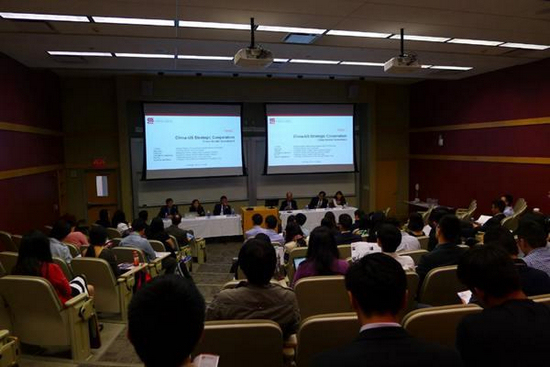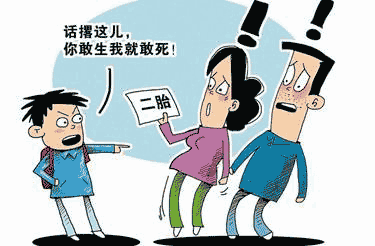Ithaca, New York -- Despite the recent slowdown in China's economic growth, top experts are confident that the strong reform commitment of the powerful leadership will drive the nation toward a healthy and robust future.
The key for success, according to leading economists and business leaders attending the annual Cornell China Conference held between April 18 and 19, is a harmonious rebalance between the market and the government.
The discussion started with the presentation by Jerry Lou on China's economic downturn. Lou is the former managing director of Morgan Stanley China and the founding partner of investment firm Everpine Capital. He summarized that in the past 15 years, China can be clearly separated into two periods. One is called "government +" in the first decade of this century, and the second one is the ongoing period "market +", in which the true market forces are becoming increasingly important.
"It is very clear that under Xi (Jinping) and Li (Keqiang) leadership, China has a clear goal toward market domination economy," says Lou. "It will provide a strong and sustaining momentum to support China’s long-term growth."
Since its debut, the Xi-Li leadership has been gradually releasing the government controls on economies and society. Ministries are required to clarify their licensing rights and give up all those unnecessary ones while simplifying the process for the remaining ones. For example, small Chinese firms have been exempted from the annual reviews and renewal of their business licenses while enjoying tax breaks.
Also, many State-owned conglomerates, such as the petrochemical giant Sinopec, are establishing joint ventures with private sectors. The joint ownership between public and private sectors becomes more popular in the local level.
However, it is not without question that the "government +" is being replaced by
"market +". Lifen Zhang, former editor-in-chief of Financial Times Chinese, argued at the Cornell China Conference that the Chinese government remains its strong control in the societal and economic development.
It is also argued by the conference participants that the Chinese government's forcible salary control policy for senior leaders of the State-owned conglomerates may be a violation of the free market rules. Since late last year, under the requirement of the central government, salaries of most senior leaders of the large State-owned enterprises such as Industrial and Commerce Bank of China have been halved.
But it seems to Lou that the salary reduction and other measures to control State-owned sector are exactly signs to support "market +". Despite their low efficiency, many large State-owned enterprises (SOEs) have used their high salaries to attract talents due to their monopoly of resources. Cutting the salaries of senior managers of SOEs is conducive to drive more talents and resources to high-efficient sectors, says Lou.
He adds that in terms of the market capitalization, the share of the State-owned sector in the domestic stock market has decreased from 64 per cent to 57 per cent in the past six months, thanks to the booming Chinese stock market that is more favoring the innovation-based small and medium firms, often privately owned.
More than 50 business leaders, leading economists and policy researchers attended the two-day Cornell China Conference -- one of the largest conferences on China among US universities.

 分享到人人
分享到人人 分享到QQ空间
分享到QQ空间


 恭喜你,发表成功!
恭喜你,发表成功!

 !
!

















